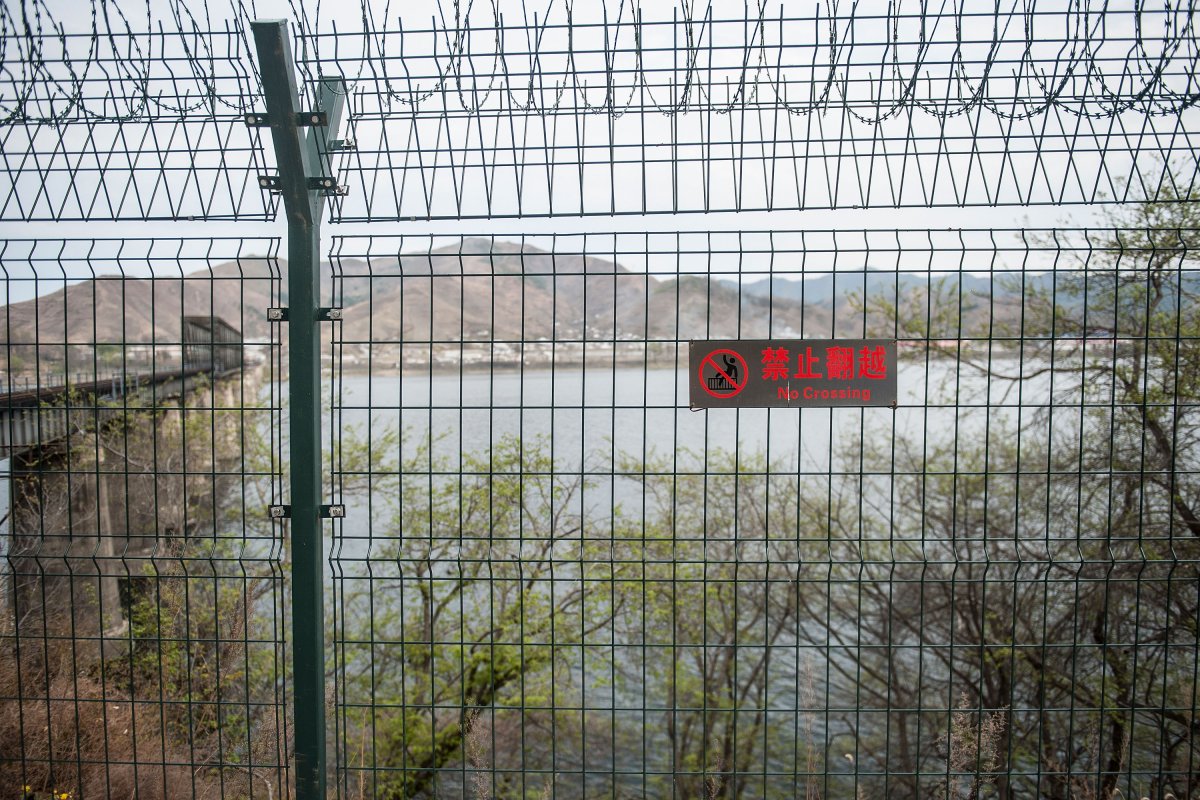North Korea's economic situation is reportedly so dire that citizens are struggling for basic needs, including food. One expert said there are even credible reports of members of the country's upper class selling off valuables at the Chinese border.
Michael Madden, a North Korean expert working with the Stimson Center and the research group 38 North, told Deutsche Welle in a story published on Thursday that elites have sold assets like gold and aluminum at the border. He told the broadcaster, "These are elite people looking out for their futures."

In January 2020, North Korea was one of the first countries close all its borders—including the one it shares with China—when news first broke of COVID-19. The border remain closed, even though new infections are reportedly drastically low in China now.
Multiple sources have reported on the impact the border shutdowns have had on North Korea's population. China has long been North Korea's biggest trading partner, usually accounting for some 90 percent of its trade volumes, and the Kim Jong Un-led country doesn't import many goods from elsewhere.
"Everything that we know is anecdotal," Lina Yoon, a North Korea specialist at Human Rights Watch, told Deutsche Welle. "I have been hearing that the situation is dire. Food accessibility is limited and people are having a hard time accessing daily necessities."
North Korea does not publicly report economic statistics, but Chinese customs data in January showed that trade between the two countries dropped by 80.7 percent in 2020.
Other factors have hurt the country's economy even before the pandemic. International sanctions made in 2016 and 2017 in response to North Korea's nuclear activities and heavy flooding in 2018 also strained economic resources.
In June 2020, the United Nation's World Food Program reported that up to 40 percent of the North Korean population needed humanitarian aid.
Kim has made references to the dire state of the country's economy. While speaking at the Eighth Congress of the Workers' party of Korea (WPK) in Pyongyang in January, he remarked that his five-year economic plan had failed to achieve its goals "in almost all areas to a great extent."
Yoon also commented to Deutsche Welle about North Korea's reliance on imports from China and how the border closings have hurt the country. She said, "When you go to a market in a border town (Chinese border), out of all the daily necessities around 90 percent are from China. But those products are probably not there anymore."
There have been signs in recent weeks that North Korea will soon ease the trading restrictions with China, according to Reuters. For the time being, though, the borders remain closed.
Uncommon Knowledge
Newsweek is committed to challenging conventional wisdom and finding connections in the search for common ground.
Newsweek is committed to challenging conventional wisdom and finding connections in the search for common ground.
About the writer
Jon Jackson is an Associate Editor at Newsweek based in New York. His focus is on reporting on the Ukraine ... Read more
To read how Newsweek uses AI as a newsroom tool, Click here.








